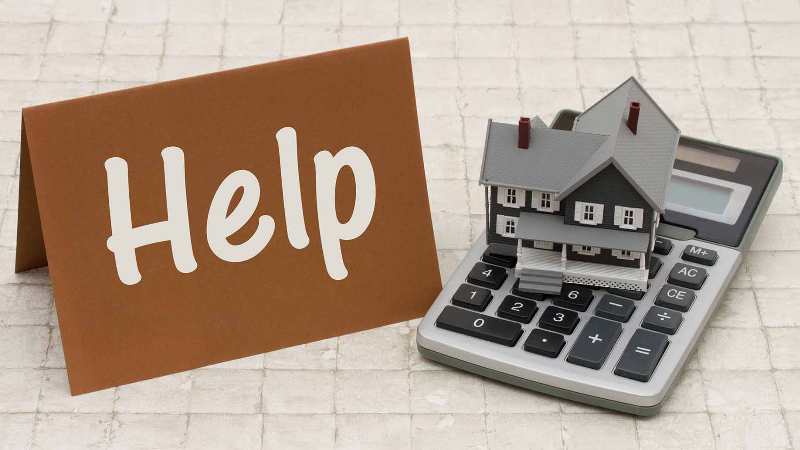Money issues often stand in the way of home-ownership. Market research by rental service Apartment List discovered that 80% of millennial renters want to purchase a home, but the majority say they are unable to afford to.
What you may not realize is that many first-time home buyer programs and grants offer financial aid, and you could qualify for various types of assistance.

9 grants and services which will help obtain a first home
Below are nine first-time home buyer programs and grants intended to enable you to land a great mortgage and have a place of your own.
FHA loan
Within the FHA loan, the Federal Housing Administration insures the mortgage. The FHA’s backing offers lenders a layer of protection, which means that your lender won’t have a loss if you default on the mortgage.
FHA loans typically include competitive interest rates, smaller down-payments and reduced closing costs than conventional loans.
For those who have a credit score of 580 or better, you are usually qualified for a mortgage with a down-payment as little as 3.5% of the purchase price. In the event your credit score is less than 580, you still might qualify for an FHA mortgage, however the down-payment could possibly be no less than 10% of the purchase amount.
USDA loan
The U.S. Department of Agriculture features a lesser known home buyer assistance program. While the program is focused on homes in specific rural areas, you won’t have to buy or run a farm to be eligible.
The USDA guarantees the home loan. There could possibly be no down-payment required, and the loan payments are fixed.
Applicants having a credit score of 640 or better typically get streamlined processing. By having a credit score below 640, you still can be eligible for a USDA loan, however the lender will ask for additional documentation concerning your payment history.
Remember that there are income limitations, which may vary by region.
VA loan
The U.S. Department of Veterans Affairs helps active-duty military members, veterans and surviving spouses buy homes.
The VA guarantees portion of the loan, allowing for lenders to provide some special features. VA loans include competitive interest rates and need no down-payment. You will not be made to purchase private mortgage insurance, and a minimum credit score isn’t needed for eligibility.
If it becomes challenging to make payments on the mortgage, the VA can negotiate with the lender for you.
Good Neighbor Next Door
The Good Neighbor Next Door program, sponsored by HUD (Department of Housing and Urban Development), provides housing aid for law enforcement officers, firefighters, emergency medical technicians and pre-kindergarten through 12th-grade teachers.
Through this program, it is possible to obtain a discount of 50% on a home’s listed price in regions generally known as “revitalization areas.” Using the program’s website, you can search for properties found in your state. You must agree to living in the home for a minimum of 36 months.
Fannie Mae or Freddie Mac
Fannie Mae and Freddie Mac are government-sponsored entities. They work with local lenders to provide mortgage options that benefit low- and moderate-income families. Having the backing of Fannie Mae and Freddie Mac, lenders can provide competitive interest rates and accept down-payments as little as 3% of the purchase price.
Fannie Mae likewise has home-ownership education for first-time home buyers through its “HomePath Ready Buyer” program.
Energy-efficient mortgage
An energy-efficient, or “green” mortgage is meant to enable you to add improvements to your home making it more environmentally friendly. The federal government supports EEM loans by insuring them with the FHA or VA programs. The main benefit of this mortgage is that it enables you to create an energy-efficient home without needing to make a larger down-payment. The additional cost is rolled into your primary loan.
Some improvements you may make include installing double-paned windows, new insulation or possibly a modern heating-and-cooling system.
FHA Section 203(k)
For those who have run the numbers to determine just how much house is within your budget and have determined a fixer-upper is ideal for your budget, the Section 203(k) rehabilitation program is usually a good fit. This kind of loan, backed by the FHA, takes into account the value of the residence after improvements are made. It then enables you to borrow the funds you will need to perform the project and includes them in your main mortgage.
The down-payment for a 203(k) loan can be as little as 3%.
Native American Direct Loan
Since 1992, the Native American Veteran Direct Loan program assists Native American veterans along with their spouses buy homes on federal trust lands. The VA functions as the lender. In case you’re eligible, you won’t be forced to make a down-payment or purchase private mortgage insurance.
This first-time home buyer loan also provides low closing costs along with a 30-year fixed-rate mortgage.
Local grants and programs
In addition to the various programs furnished by the federal government, many states and cities offer assistance to first-time home buyers. Before purchasing a home, review your state’s or community’s website for information about housing grants and programs available in your area.
In addition, you might consider contacting Nick, Cindy or Nicholas Davis, or local HUD-approved housing counseling agency for more information regarding programs in the area that could apply to your situation.
Ready to find out the current market value of your home? Nick & Cindy Davis with RE/MAX Premier Group are here to assist you. We are always a just a click here away or call 813-300-7116